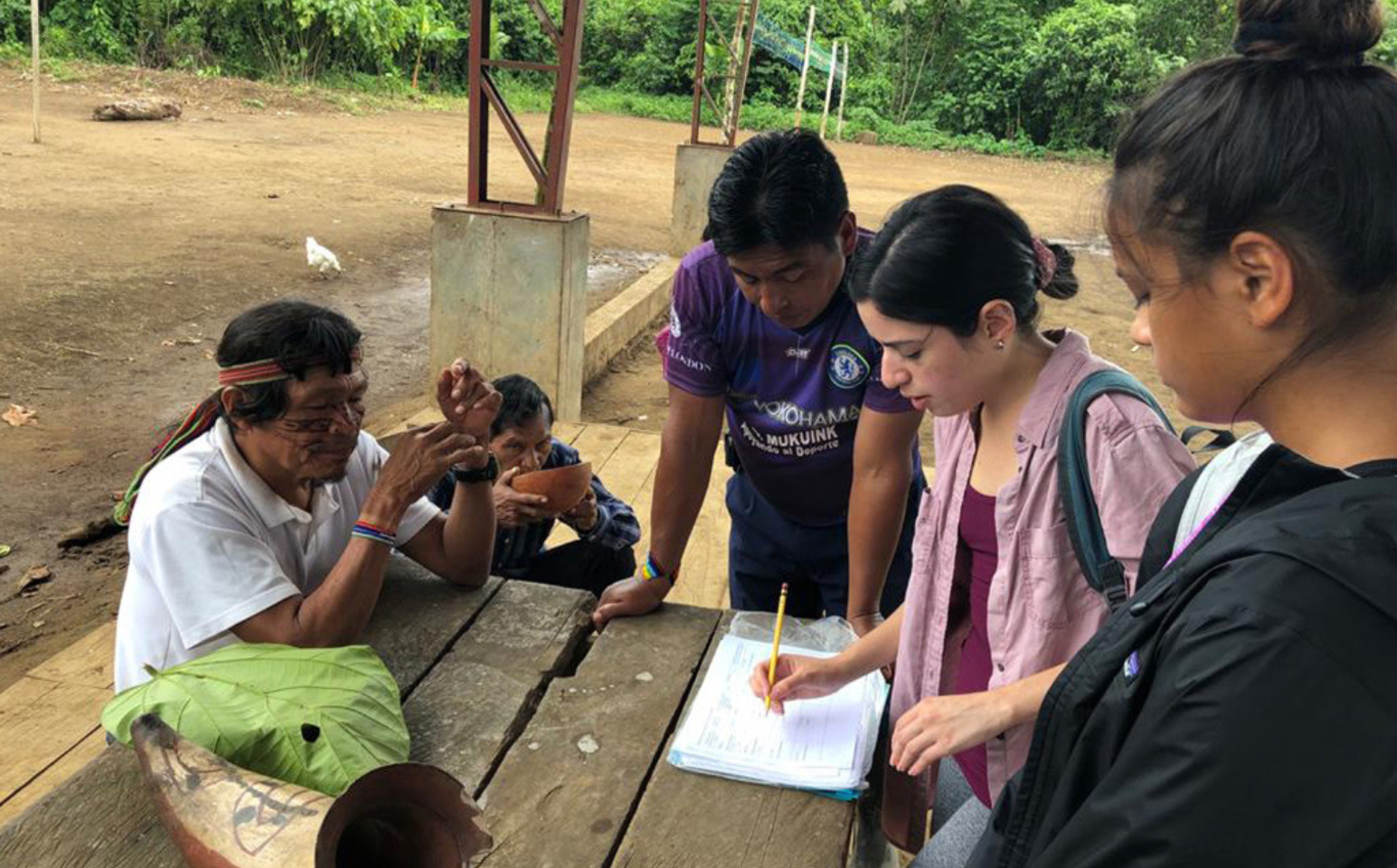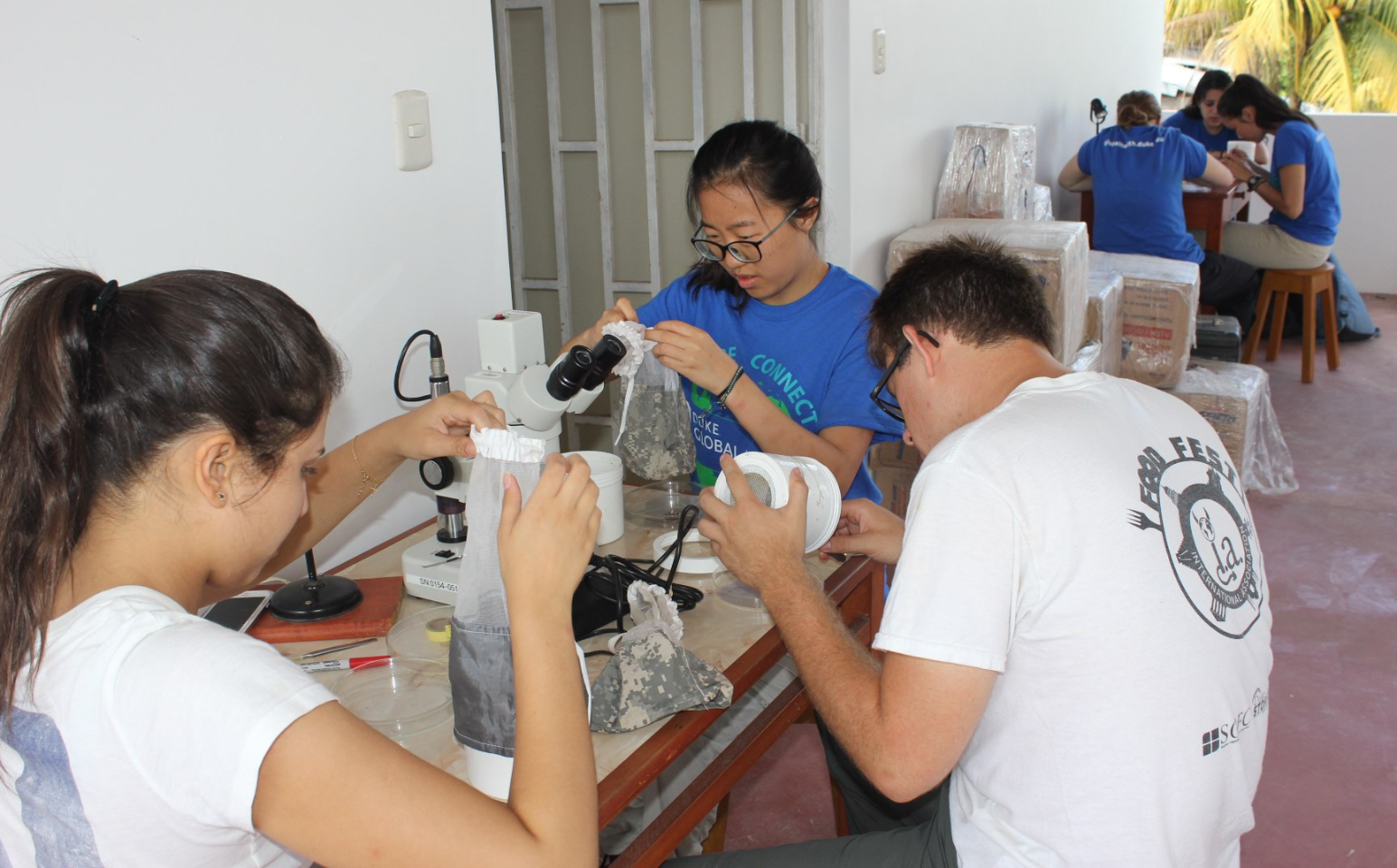Training the Next Generation of Researchers



We are dedicated to training the next generation of leaders in climate change and One Health research in the Amazon and across Latin America. Through hands-on fieldwork, cutting-edge research opportunities, and comprehensive academic courses, our trainees gain the skills and expertise needed to drive meaningful change.
A Decade of Research and Engagement
Bass Connections at Duke University
Through Duke University’s Bass Connections program, our Environmental Epidemiology in Latin America series provides students with academic training, hands-on research experience, and opportunities to engage with communities to address real-world challenges in climate change, health, and environmental science in Latin America. These projects help bridge classroom learning with real-world impact, equipping students with the skills to lead in climate and health research while fostering meaningful community partnerships.
PAST PROJECTS:









Diverse Experiences in Climate Change and One Health Research
Carolina Coombes Pérez, MD MSc
"Up until joining the ARC team, I had only known clinical research as a way to understand infectious diseases. The ARC has broadened my perspective, introducing me to a diverse range of approaches to infectious disease research that incorporate sociodemographic and meteorological factors through a OneHealth lens. I am profoundly grateful to be part of this interdisciplinary and international team and to be constantly learning and being challenged."
Henry Cárdenas Campoverde, MSc
"Being part of the ARC team on the Malaria Early Warning System project has been an exceptional experience, offering unique opportunities to apply machine learning and Bayesian models for malaria forecasting. Working alongside a diverse, multidisciplinary team, we developed a web dashboard to visualize spatiotemporal data and predict malaria cases across Ecuador, Peru, and Brazil. This dynamic environment fosters innovation and offers a rewarding space for impactful research— an ideal setting for those looking to advance in data-driven health solutions."
Sara O'Malley, MSGH
"Working with the ARC has been an incredible experience – it’s the kind of work that brought me to Duke and the Pan Lab in the first place. Our highly interdisciplinary team has allowed me to engage with and learn from a variety of experts and trainees across multiple fields, institutions, and countries. Further, the group is truly full of amazing people who are dedicated to improving malaria burdens – it has been wonderful to be a part of."
Annika Gunderson, MSGH
"Working on this team has created a lot of opportunities to be a part of interesting and applicable research. I’ve really enjoyed getting to learn from people in a range of fields and see how different disciplines and methods come together to answer questions. Our group has been very encouraging of students to branch out and learn new skills and broaden their experiences."
Perla Medrano, MSGH
"Working with the ARC has been a transformative experience. I’ve experienced many 'firsts'—from being introduced to vector-borne disease, One Health, and climate change research, to conducting fieldwork in Peru, Ecuador, and Panama, to seeing how collaborations at the local, regional, and international levels can create scalable, meaningful change. It's been an honor to work with such a knowledgable, passionate, and diverse team committed to improving health outcomes in this underfunded region, actively seeking opportunities to collaborate with at-risk communities and researchers from underrepresented groups. I am deeply grateful to contribute to this important work."
Manuel Narvaez, MEng
"ARC trainings have been a valuable opportunity to enhance and develop new skills in climate and hydrological modeling, early warning systems, and agent-based models for infectious diseases. My experience with models such as NASA's Land Data Assimilation System has been particularly beneficial, as the training has taught me about the coherence between hydrology, climate, and early warning systems. Additionally, the multidisciplinary training helped me understand the importance of creating a malaria early warning system to support the Ministries of Health across the Amazon Basin."
Current & Upcoming Opportunities
COMING SOON
Student Spotlights: In the Field and Beyond

Bridging the Science-Policy Gap
January 23, 2019 | Duke Global Health Institute

Exploring Health and the Environment in the Peruvian Amazon
June 2, 2018 | Duke Global Health Institute

Multimedia Feature Showcases Student Research in Peru
December 13, 2016 | Duke Global Health Institute

Q&A with 2016 Bass Connections Team Member Justin Lana
December 12, 2016 | Duke Global Health Institute

Doctoral Scholar Sarah Diringer Applies Engineering Expertise to Human Health
January 26, 2016 | Duke Global Health Institute

Global Health Doctoral Scholar Presents at International Conference in Peru
December 16, 2014 | Duke Global Health Institute

Making Time for the Unplanned Global Health Work
August 6, 2013 | Duke Global Health Institute

Notes from the Field: Hena Vadher MS’25
September 5, 2024 | Duke Global Health Institute
